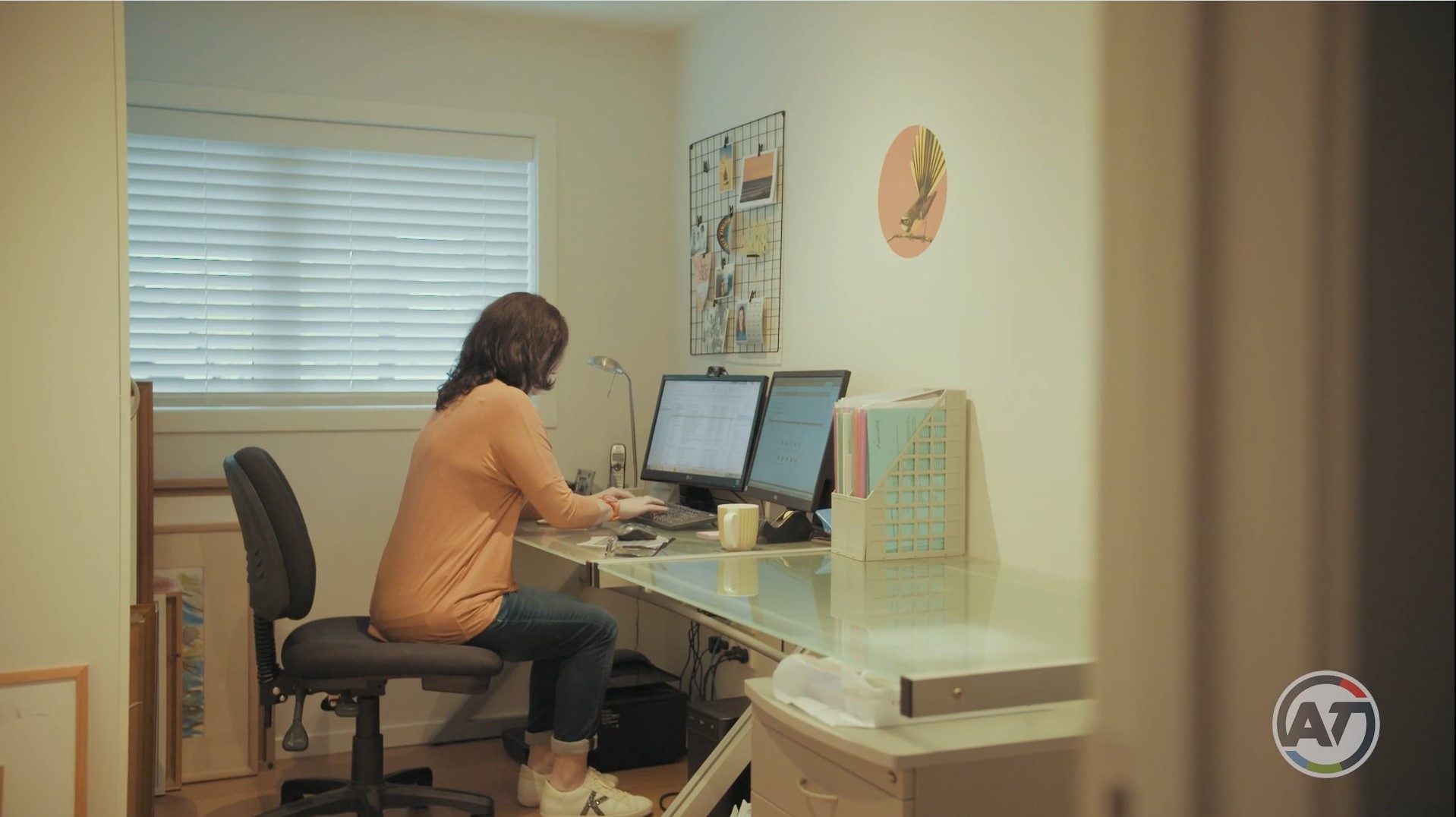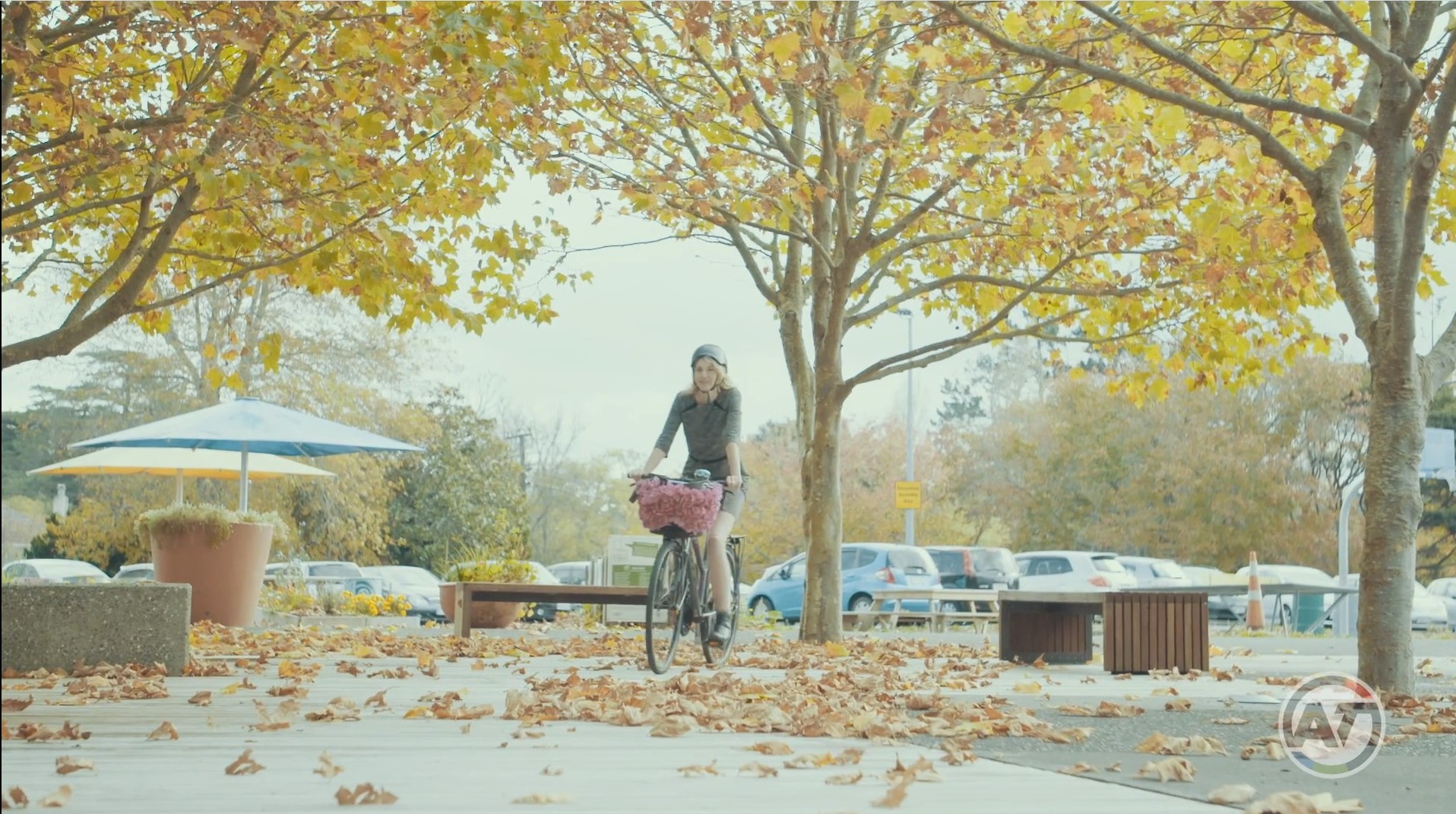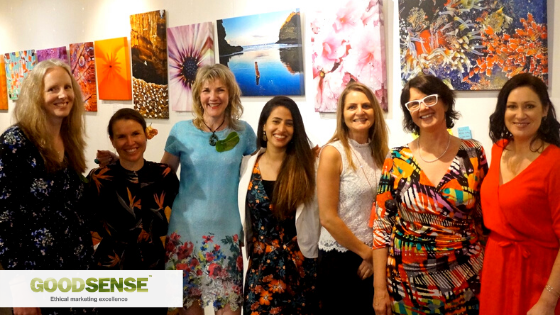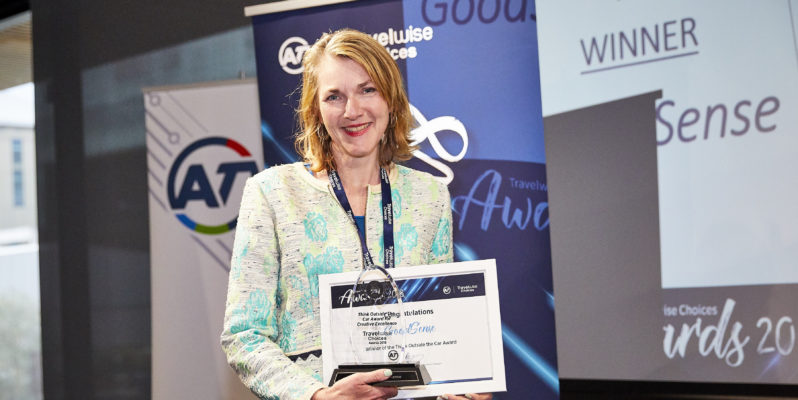GoodSense is an ethical marketing business that has been leading in marketing sustainability since 2010. We have a team of a dozen experienced people across four centres – Auckland, Taupo, Wellington and Christchurch – and no office. We have a dozen home offices and one of our Directors, Jo Patterson, has a desk in a shared-space because Jo prefers to work away from the whare.
And yet our people often say they are with us because of the team culture. And our practices internally and with our clients are highly collaborative.
Since we won the Auckland Transport Travelwise Choices Award for ‘Thinking Outside the Car’, in August 2018, people have been asking how we make it work. The Award recognises ‘creative excellence in reducing car dependency and congestion’. Every company is different, but this is how we use flexi-working at GoodSense.
1 Shared values
GoodSense has never had an office. When the founder, Kath Dewar, started to bring other team members on board, they shared her desire to combine senior marketing work with work-life-balance. Some team members have wanted more freedom around school pick-ups, some to develop parallel careers; yoga instructor, artist, author, celebrant, and online retail as well as part-time marketing roles, have all been in the mix. While individual freelance marketing can provide this flexibility, it can be a bit lonely, limiting and hard to manage both spikes of work and finding projects.
As well as our business seeking a more sustainable path, our team is also all trying to reduce their climate and other environmental impacts. UK-based data from 2014 suggests that, subject to the commute, people can save 260kg CO2e and around NZ$1,250 per year through working from home. With our lower use of fossil fuels for power generation for heating and lighting and lower public transport patterns, the savings are probably greater for Aotearoa, especially in Tāmaki Makaurau.
We share our values of caring about nature and people with our clients; this makes them supportive of our need to schedule trips and manage work around life in a healthy way.
However, we also try hard to be good communicators, regardless of how we are communicating. (Dear clients, please do tell me if we ever fail in this!)
2 Foster the skills
While it helps that as a marketing business we tend to be reasonable communicators, we know that under stress any of us can be too abrupt or too nit-picky, too chaotic or too emotional for their colleagues. Put more than one team member under stress and tempers can fray. That’s where TetraMap® helps. TetraMap transforms team performance. It’s a New Zealand designed approach to human behaviour that is used worldwide – and by us at GoodSense.
We discovered TetraMap when they asked us for marketing help and our two companies quickly signed up to each other’s’ services. Three of the GoodSense team are certified TetraMap facilitators, but every GoodSense team member is trained in how to use it, as part of our induction. We use its nature-based metaphor for behaviour in our conversations every day and we structure agenda items in our team hui using it. We also train other companies to use TetraMap.
3 Flex the tech
We make the most of 21st technology to deliver great client service and flexible working with minimal travel. Our team operate from a network of home offices connected by a cloud-based phone system, video conferencing and a secure social network/intranet for document sharing and communication. This approach supports the quality of life of our team members and minimises our use of space and pointless travel. The services we currently use include Conversant Voice over internet phone system, Zoom video conferencing and MangoApps. These are specifically for communication, over the usual operational systems you’d expect such as email, Xero and a CRM.
We make heavy use of video conferencing for client meetings and workshops and team meetings. We subscribe to two video meeting rooms and a voice-only phone conference line because we want our team to use them for internal hui and file sharing. Our booking system makes sure there is always room available. Our unflappable and talented Practice Manager keeps everything humming, from their home office.
We look for ways to create strong personal interactions without having to travel and the Directors try to model this so it is part of our culture. A phone call goes a long way.
4 Getting around
Diaries are scheduled to minimise transport and to make the most of any fossil fuel we burn. Our Directors walk, cycle, train, and bus wherever feasible. And we encourage our team too, celebrating less use of cars and standing up for climate action.
When our Directors have to travel out of town, we schedule multiple days of co-ordinated meetings around the initial cause for travel to make the most of the trip. When we host physical events, we plan venues near public transport and encourage participants to use it. We offset, through Enviro-Mark Solutions, the Directors flight and vehicle emissions that we can’t avoid creating.

5 Be there when it counts
Our default setting to communicate is to phone, video conference or email. Even text messages have their place. But there are times when it matters to be there. Co-creation workshops, where we do deep dives of creative, strategic work with our clients, need one of us to be with the majority of participants, to facilitate a good process. We don’t have many casual meetings – agendas, facilitation and clear outputs are our friends. There are some times when working with other humans when being together really counts, so we make those a priority, and plan other meetings around them.
We also plan together-time for the whole team. About three times a year we shout a lunch, share some professional development insights and structure a general catch up with people coming together in Auckland or joining by video conference from out of town. And we have a fourth purely social get together which lets the Directors say thank you. These help build the bonds and goodwill that underpin flexi-working.
Really all these approaches are ways to deliver a culture of being good as a team; flexi-working requires trust, co-operation, systems, judgement, and tolerance. But then so does any way of doing business.
We hope this has been useful. If you’d like to find out how a flexi-working ethical marketing team could help your organisation, or have any questions about how we do it, please do get in touch.
Read more about our sustainability at GoodSense or sign up for ethical marketing updates from us














